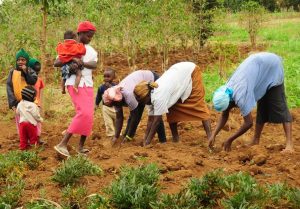FCA Briefing with WFP/ActionAid and ESAFF
The spread of Covid-19 throughout Southern Africa is worsening the region’s already dire rates of food insecurity and malnutrition, pushing millions more people into poverty and hunger.
Regional experts on food insecurity from the World Food Programme (WFP), ActionAid and the Eastern and the Southern Africa Small-Scale Farmers’ Forum (ESAFF), will be sharing the latest from the frontlines of the food and climate crisis.
t calls for transformation of agricultural development to improve climate resilience and accountability, with a focus on women farmers, who contribute more than 60% of total food production in the region.
In Zimbabwe, the most severely affected country, the number of food insecure people is likely to double by the end of 2020: about 8.6 million people, including 5.3 million people in rural areas and 3.3 million people in urban areas.
Zambia and Malawi are also severely affected while Mozambique is facing not only food insecurity but an increasing threat from terrorism.
A recording of this briefing is available here:
Listen now






















